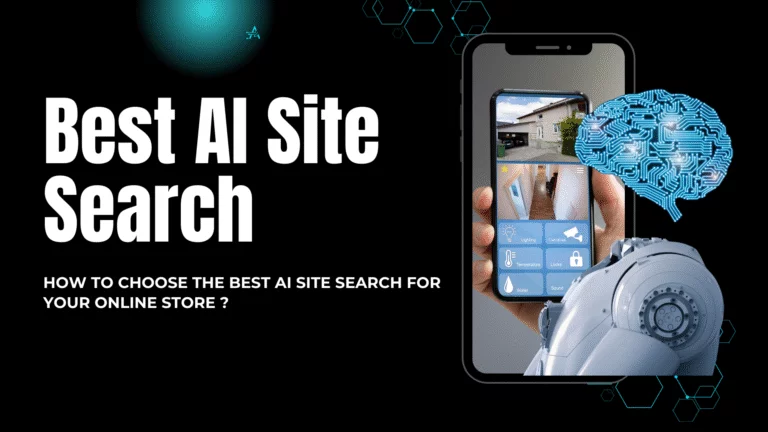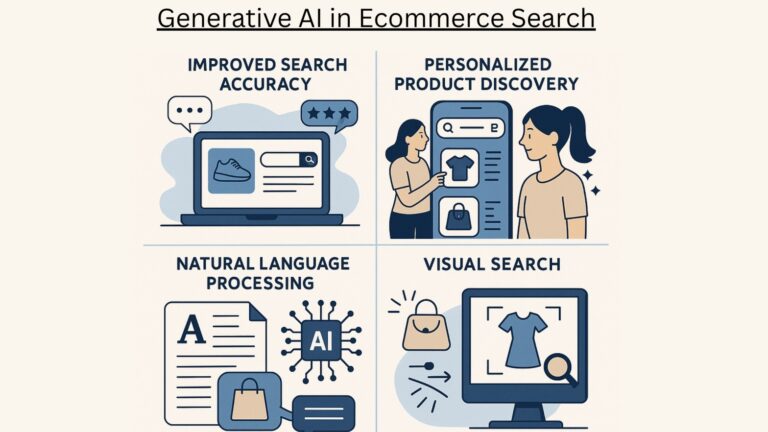In the fast-paced world of ecommerce, users don’t just want search—they want smart search. That’s why many businesses are now looking for the best AI site search solution to deliver more relevant results, improve product discovery, and boost conversions.
AI-powered site search is no longer a futuristic luxury—it’s the new standard. So, how do you know which one is right for your business? In this post, we’ll break down what makes a great AI search engine, how it works, and what to look for when choosing the best one for your site.
What Is AI Site Search?
AI site search goes beyond traditional keyword matching. It uses machine learning, natural language processing (NLP), and behavioral data to understand intent, predict what users are looking for, and personalize results in real time.

Unlike basic search engines, AI-driven tools adapt over time—getting smarter with every query, click, and purchase.
Why Traditional Site Search Falls Short
Most default search tools simply look for matches in product titles or descriptions. This often leads to:
- Irrelevant results
- No recognition of typos, slang, or synonyms
- No learning from user behavior
- Zero personalization
- Dead-end “no results found” pages
These issues frustrate users and hurt conversion rates—especially on mobile.
What Makes the Best AI Site Search Engine?
When evaluating your options, look for these critical capabilities:
1. Natural Language Understanding (NLU)
The best AI search engines can understand conversational queries like “affordable wireless headphones under $100.”
2. Typo Tolerance and Synonym Recognition
Misspelled or differently phrased queries shouldn’t break the search. AI can recognize intent even when input is imperfect.
3. Personalized Results
AI learns from user behavior—what they click, buy, or search for—and tailors results accordingly.
4. Smart Ranking Algorithms
Results should be ranked not just by keyword relevance but by performance metrics like click-through rate, sales, and inventory status.
5. Visual Merchandising Control
Merchants should be able to boost or pin products, define rules, and influence how results appear without writing code.
6. Analytics & Insights
The best tools give deep visibility into what customers are searching for, what’s converting—and what’s not.

Is there a Smarter Way to Add AI Site Search ?
If you’re exploring how to implement an AI-driven search engine for your website, it’s worth looking into platforms that combine intelligence with simplicity. One such option is ExpertRec, which offers a well-balanced mix of:
- AI-powered query understanding
- Typo and synonym handling
- Personalized ranking based on user intent
- Visual merchandising controls
- Zero-result recovery strategies
- Integration with major ecommerce and CMS platforms
- Insightful analytics to track search performance
What stands out is how easily it fits into existing systems while offering meaningful upgrades in user experience. It brings the benefits of AI to your store—without requiring extensive developer effort.
Conclusion: Smarter Search Drives Smarter Sales
Choosing the best AI site search is about more than features—it’s about improving the journey from search bar to checkout. AI helps users find the right product faster, makes recommendations that matter, and ensures no query ends in a dead end.
If your current search tool feels outdated or rigid, upgrading to an AI-powered solution can be a game-changer. Not all platforms are created equal, so take the time to explore the ones that strike the right balance between intelligence, usability, and integration.
One option that many growing businesses have found effective is ExpertRec—a practical and flexible way to modernize your search experience.
Frequently Asked Questions
AI site search uses machine learning and natural language processing to interpret user intent, provide smarter autocomplete, and personalize results.
AI can handle typos, understand synonyms, and adapt to user behavior—making results more relevant and effective than basic keyword search.
Not necessarily. Some solutions, like ExpertRec, are designed for easy integration and offer customization options without deep coding.
Yes. By improving relevance and usability, AI-powered search keeps users engaged and helps them find what they need faster.
No. AI search works well across content-heavy websites, help centers, SaaS apps, and enterprise knowledge bases too.




